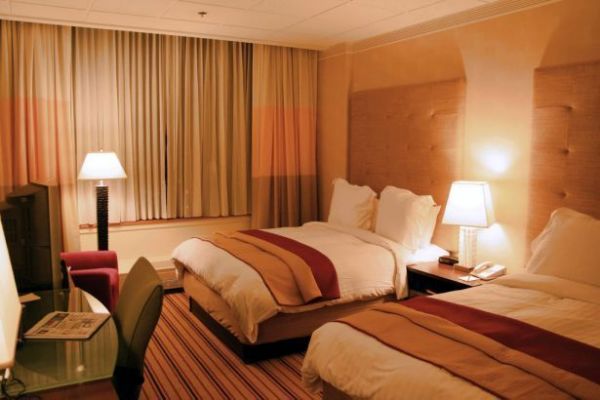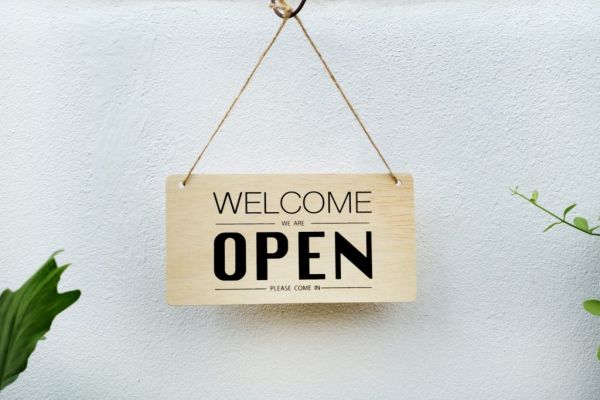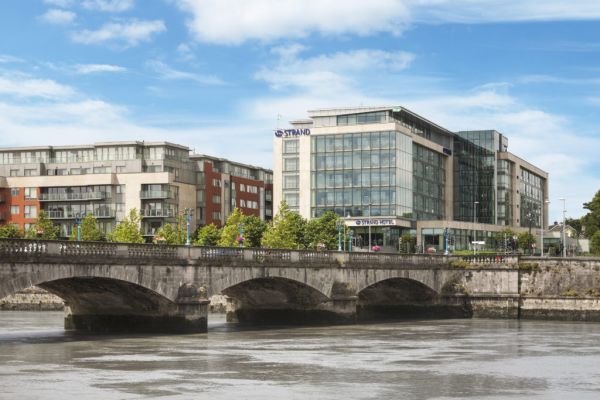Regional hotels and guesthouses are facing serious challenges despite record tourism numbers last year, according to the Irish Hotels Federation (IHF). With regional room occupancy rates down year on year, IHF CEO Tim Fenn has warned against complacency and called for a greater government focus on the development of rural Ireland.
Speaking ahead of the IHF’s 81st Annual Conference in Killarney, Co. Kerry, Fenn said, "We continue to have a two-tiered tourism industry, which government policy is failing to address. While there has been good growth overall in recent years, not every tourism business or part of the country has enjoyed the same level of success. There are many areas where tourism remains very seasonal and hospitality businesses struggle to break even during off-peak periods. Tourism businesses in these areas still have a substantial amount of lost ground to make up since the downturn.
"They can ill afford to take another economic hit, particularly in light of increased uncertainties around Brexit. Regional businesses are already bearing the brunt of the hike in tourism VAT, with €300 million in additional taxes being taken from the rural economy each year. Ireland is already a high-cost location for doing business, and we now have the fifth highest tourism VAT rate in Europe, which puts regional tourism at a further disadvantage. This is seriously undermining the capacity of regional hotels and other tourism businesses to invest in future growth.
"There is now a serious risk that rural Ireland will be left behind when the government’s focus should be on creating the right environment to sustain growth across the entire country. What is sometimes lost in discussions about the economy is that tourism growth is one of the most effective ways to spread employment opportunities and prosperity across the regions."
Commenting on tourism brands that have been launched in recent years, Fenn added, "Initiatives such as The Wild Atlantic Way, Ireland’s Ancient East and Ireland’s Hidden Heartlands offer significant potential for regional tourism growth, and these initiatives must be more adequately resourced. They can play a vital role in lengthening the tourism season in parts of the country that currently lag behind. This is of critical important to local economies where tourism is the only show in town."
Rising Insurance Costs
Meanwhile, a new industry survey by the IHF has warned that soaring insurance premiums are having a detrimental impact on cost competitiveness within the hotel sector, with some 78% of hotels reporting further increases in insurance costs in the past 12 months. Of these, the average increase in premiums was 15%, which is in addition to substantial increases in recent years, according to the IHF, and Fenn has called for urgent action by the government to address escalating insurance costs, which the IHF says have now reached an unsustainable level, averaging €1,150 per guest bedroom annually.
Fenn stated, "The time for foot dragging is long past. The government must now deliver concrete results in relation to insurance reform. Progress has been extremely slow to date and this inaction is having serious consequences for the viability of hotels and other tourism businesses. The exorbitant levels of awards and lack of consistency is also making Ireland less attractive for insurers and we are seeing an increasing number that are no longer willing to provide cover to hospitality businesses. This in turn is reducing competition in the insurance market and driving up costs.
"With levels of awards now running at up to five times those in the UK, it is particularly frustrating that we still do not have a firm timeline for legislation setting up a judicial council to review levels of awards made by the courts. This has effectively stalled and is very worrying given the detrimental impact escalating insurance premiums are having on our competitiveness, which is ultimately borne by the consumer."
While welcoming proposals by the government for the setting up of an interim committee to look at personal injury claims, Fenn said, "This is very much a stop-gap measure. There remains a lack of clarity around how soon such a committee would produce revised guidelines on levels of compensation, which are currently severely out of kilter with other countries.
"Levels of fraudulent and exaggerated injury claims are another major concern for our sector and one where there has been an inexcusable lack of progress. We are calling for a zero tolerance approach to fraud and for urgent priority to be given to establishing a dedicated resource within the Garda Síochána specifically tasked to investigate fraudulent cases. This should go hand in hand with the referral of fraudulent claimants for prosecution. This is an area where insurers, the legal system, Garda Síochána and the government have a vital role to play."
Brexit Effect
IHF research has also found that business sentiment amongst Irish hotels and guesthouses has deteriorated sharply year on year, representing a stark change in outlook compared with 2018. The IHF's survey revealed that only 40% of hoteliers now have a positive outlook for their business over the next 12 months. This compares with 79% who reported a positive outlook at the start of 2018.
Major concerns for the sector include the continued risk of a disruptive Brexit and reduced competitiveness due to the hike in tourism VAT, increases in the cost of doing business, and growing economic uncertainty internationally. In particular, the survey found that the higher VAT rate is putting investment in additional hotel capacity at risk, with 75% of hoteliers stating they are now reassessing plans to increase capital investment as a result of the increase.
Performance so far this year has been mixed, according to the IHF's research, with 39% of hoteliers reporting a drop in overall business levels compared to this time last year, while 48% reported an increase. This was found to be have been largely driven by growth from North America and Europe. Almost two thirds of hoteliers (65%) surveyed said that advance bookings for 2019 from Great Britain are down while almost six in ten (57%) said they are seeing a fall in advance bookings from Northern Ireland.
IHF president Michael Lennon commented, "With the prospect of a disruptive Brexit looming, the sharp fall in business sentiment amongst hoteliers is not surprising. Our fear is that regional tourism businesses risk being hardest hit, especially those operating in areas that are heavily reliant on seasonal and UK markets. Many of these regions have only begun to feel the benefits of the economic recovery in recent years.
"Tourism plays a vitally important role as an engine of growth and regional economic balance. However, this could be put at risk if the government does not take decisive action to mitigate the impact of Brexit and address the other serious challenges we now face such as the high cost of doing business in Ireland.”
"Tourism is an exceptionally competitive activity. We compete daily for business at both a domestic and international level, and every tourism euro spent by overseas and domestic tourists in Ireland is hard won. Maintaining our competitiveness is absolutely vital to sustaining the growth of the industry, which supports jobs in every country and town
"With 70% of tourism jobs based outside of Dublin, tourism’s wide geographic distribution is critical to sustaining regional economies and addressing the rural imbalance. And, as the biggest investor in Irish tourism, the hotels sector is playing a critical role. Hotels and guesthouses not only provide local employment opportunities, we buy local services, source locally produced food, and provide a vital infrastructure in support of local business and communities."
Welcoming the government’s commitment last year to introduce a Tourism Satellite Account within the CSO, Lennon called for it to be implemented as a priority, saying, "This account will provide a full analysis of the economic activity in the tourism industry and show how much it contributes to each county throughout the country to inform future taxation and economic policy."
© 2019 Hospitality Ireland – your source for the latest industry news. Article by Dave Simpson. Click subscribe to sign up for the Hospitality Ireland print edition.









